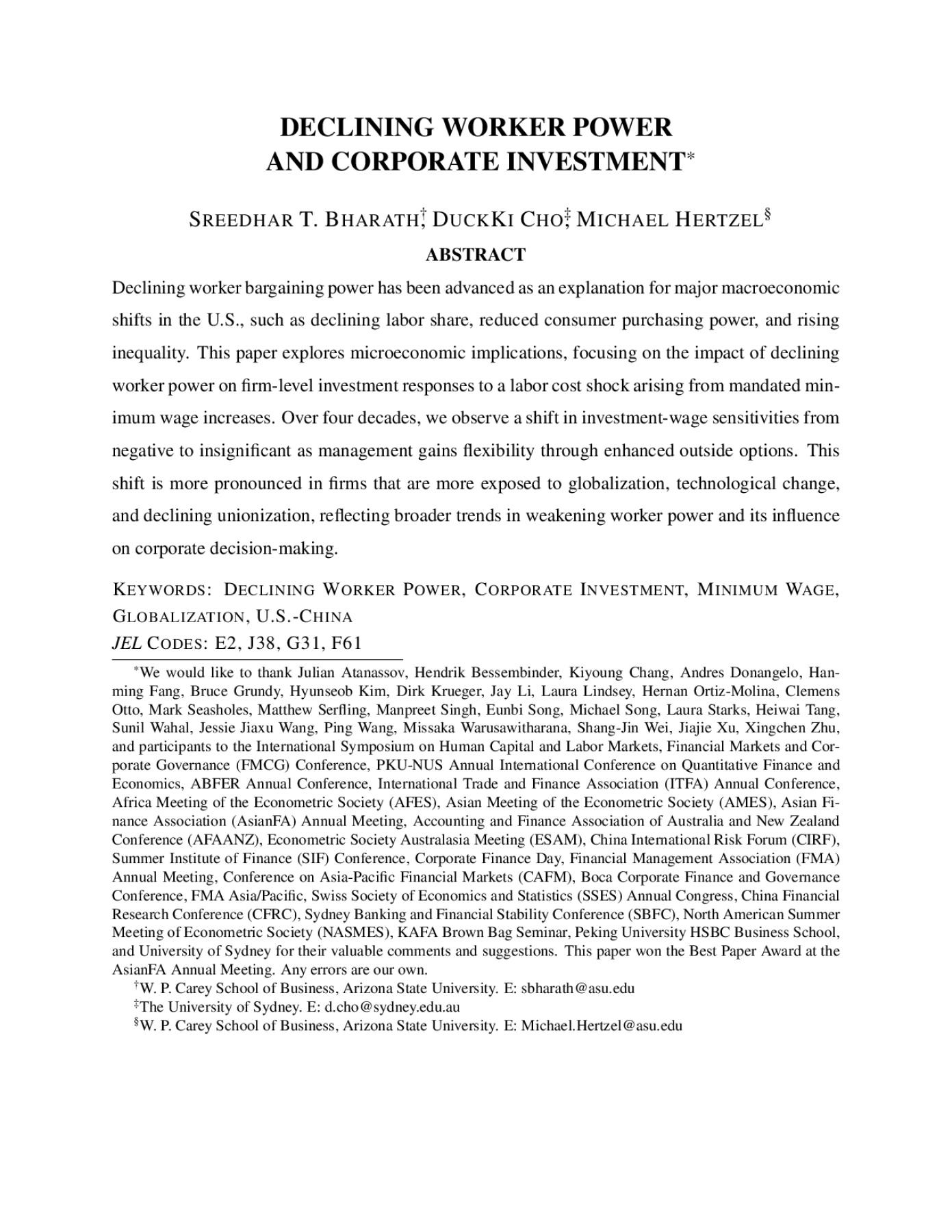2024 North American Summer Meeting: June, 2024
Declining Worker Power and Corporate Investment
Sreedhar T. Bharath, DuckKi Cho, Michael Hertzel
Declining worker bargaining power has been advanced as an explanation for major macroeconomic shifts in the U.S., such as declining labor share, reduced consumer purchasing power, and rising inequality. This paper explores microeconomic implications, focusing on the impact of declining worker power on firm-level investment responses to a labor cost shock arising from mandated minimum wage increases. Over four decades, we observe a shift in investment-wage sensitivities from negative to insignificant as management gains flexibility through enhanced outside options. This shift is more pronounced in firms that are more exposed to globalization, technological change, and declining unionization, reflecting broader trends in weakening worker power and its influence on corporate decision-making.
Preview












































































